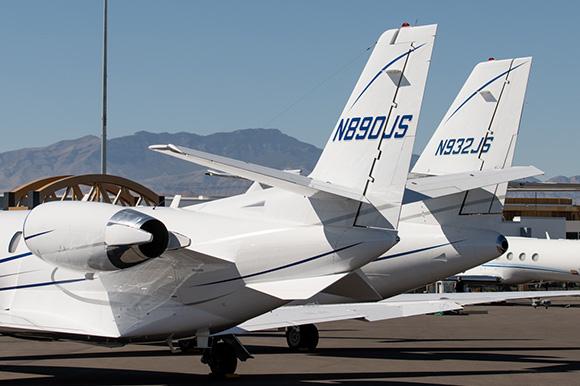
LAS VEGAS—For the first time in nearly a year, market optimism by business aircraft owners and operators has turned positive, according to a third-quarter survey by JetNet iQ.
“The industry has been in a little bit of a funk in the last few quarters,” Rolland Vincent, JetNet iQ director and president of of Rolland Vincent Associates, a consulting firm, said during a briefing at NBAA-BACE. “The good news is, we see the mood picking up.”
In the third-quarter survey, 55% of more than 500 owners and operators who responded said they think the market is past its low point, while 38% said the market has not reached a low point and 6.8% said the market is at its lowest point.
The survey was taken before the Israeli-Hamas war, which may be reflected in the fourth-quarter survey.
“Taxes, regulations, risk, border violence—unlike market forces, some things never change,” JetNet says.
Respondents were asked whether they think the role of business aviation is well understood by the general public. In North America, more than 75% of respondents disagreed or strongly disagreed. Owners and operators in Europe and the Latin America and Caribbean regions, meanwhile, expressed similar feelings, with 70% and 65%, respectively, disagreeing.
“If you’re in the public relations world, you’re probably either busy or about to be busy because . . . we need to focus on this,” Vincent says. “For many years, we go to these conferences; we all speak to each other; we all like each other; but there’s work to be done outside because outside it can affect policies, it can affect taxes, it can affect access.”
When it comes to sustainable aviation fuel, respondents are more positive about considering the use of SAF than they were four years ago.
In 2019, 31% of respondents said they somewhat or strongly agree that they would consider flying with SAF over the next 24 months. In the most recent survey, that number grew to 56%.
When asked if they had $500 million to invest in business aviation, where would they put their investment, 24% said in the maintenance, repair and overhaul business, 22.5% said in a hybrid turbine engine and 15% said in SAF production.
The answer differs by age group, however. In the over-40 age group, the top answer was an investment in hybrid turbine engines, while the top answer In the under 40-age group was in charter aircraft.
“Your daughter, your kids, they’re really not interested in owning assets," Vincent says. “They’re actually wanting to invest in things that they don’t have to own.”
This answer can serve as a predictor of the future of the industry in general, he says.
Owners and operators were asked about the the main factors that could delay their organizations from buying a business aircraft over the next 12 months.
In both the 2019 and in the latest survey, respondents’ first answer was not having a need. In 2019, the second answer was uncertainty about the economy or regulatory environment. That changed in the most recent survey, with respondents saying the purchase price or trade-up costs were too high.





